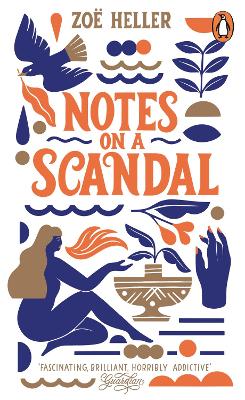Reviewed by gmcgregor on
Well, befriend isn't really the right word. She wants to become a necessary part of her life, the way she'd been closely enmeshed with a different younger woman years earlier who got married and will no longer speak to her. There's an implication that Barbara's interest is more than platonic, but I think making too much of a "repressed lesbian" angle is overstating the case. As I read it, Barbara's not trying to get into Sheba's pants, she's trying to get into her head and exert control over her. And the way Heller writes it (through Barbara's not-exactly-unbiased narrative voice), Sheba isn't exactly in control of her affair with Steven, either. The deeper Sheba gets in, the more he pulls away until he eventually ends it. And then it all comes tumbling down, leaving Sheba cast off from her family with no one to stand by her side. No one, that is, besides Barbara.
Heller has written a book with a lot of moral complexity. Barbara is certainly manipulative, but she's also desperately lonely, and is understandably very hurt when Sheba throws her over after she's had to put her cat down to go cavort with Steven. Fundamentally, she wants to be important to another person, which is something most of us want (although most of us aren't as manipulative as Barbara). Sheba is the one crossing the boundary with Steven, but she met her much-older husband when he was her professor in college, when she was only a few years older than her teenage lover, and Steven proves to be the party less emotionally invested in their relationship. Both women are predators, but neither is purely evil.
It's a book that may prove difficult for some people to read as it deals heavily with a adult-teenager, teacher-student relationship. Barbara, for all that Heller has given her some sympathetic qualities, is a negative character and given that the book is told from her perspective, I'd classify it as "dark" in tone. But it's undeniably compelling. Even though I watched the movie (years ago, when it came out) and remembered the "twist", as it were, I still found it interesting and enjoyable, in its own way, to read. I'd recommend it for people prepared for the subject matter.
Reading updates
- Started reading
- 2 August, 2017: Finished reading
- 2 August, 2017: Reviewed
